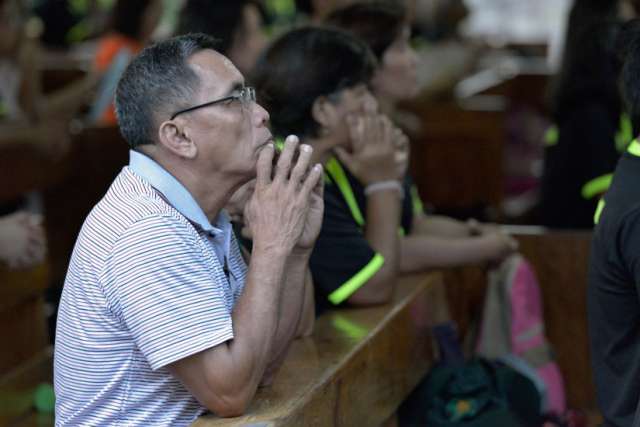But, even as this is going on, another part of us is forever reaching upwards, struggling to grow, to achieve higher things, to live a life that is more admirable, noble and altruistic.
Then, at another level, we struggle with a threatening darkness that surrounds and undergirds us. The complexities of life can overwhelm us leaving us feeling threatened, small, excluded and insignificant. A part of us is forever conscious that we stand one season, one breakdown, one lost relationship, one lost job, one death of a loved one or one thing that we cannot even foresee away from a descent into paralyzing depression, an illness or a dark chaos that we cannot control.
In short, we struggle to maintain ourselves, struggle to grow and to keep depression and death at bay. Because we struggle at these three levels, we need three kinds of spiritualities in our lives.
At one level, we need a spirituality of maintenance, that is, a spirituality that helps us to maintain our normal health, stability and ordinariness. Too often spiritual teachings neglect this vital aspect of spirituality. Rather we are forever being challenged to grow, be better persons, to be better Christians, to simply be better than we are at present. That’s good, but it naively takes for granted that we are already healthy, stable and strong enough to be challenged. And, as we know, many times this isn’t the case. There are times in our lives when the best we can do is to hang on, not fall apart and fight to regain again some health, stability and strength in our lives, to simply get one foot in front of the next. At these times in our lives, challenge isn’t exactly what we need, rather we need to be given divine permission to feel what we’re feeling and we need to be given a warm hand to help draw us back towards health and strength. The challenge to grow comes later.
And that challenge comes with an invitation that invites us upwards, towards a spirituality of the ascent. All spiritualities worthy of the name stress the need to make a certain ascent, to grow beyond our immaturities, our laziness, our wounds and the perennial hedonism and shallowness of our culture. The emphasis here is always to reach upward, beyond, towards the heavens and towards all that is more noble, altruistic, compassionate, loving, admirable and saintly. Much of classical Christian spirituality is a spirituality of the ascent, an invitation to something higher, an invitation to be true to what is deepest inside of us, namely, the image and likeness of God. Much of Jesus’ preaching invites us precisely to something higher. Confucius, one of the great moral teachers of all time, had a similar pedagogy, inviting people to look to beauty and goodness and to forever reach in that direction. In our own time, John Paul II used this very effectively in his appeal to young people, challenging them always to not settle for compromise or second-best, but to look always for something higher and more noble to give their lives to.
But the challenge to growth also needs a spirituality of descent, a vision and a set of disciplines that point us not just towards the rising sun, but also towards the setting sun. We need a spirituality that doesn’t avoid or deny the complexities of life, the mad conspiracy of forces beyond us, the paralyzing losses and depressions in life and the looming reality of sickness, diminishment and death. Sometimes we can only grow by descending into that frightening underworld, where, like Jesus, we undergo a transformation by facing chaos, diminishment, darkness, satanic forces (whatever these may be) and death itself. In some ancient cultures this was called “sitting in the ashes” or “being a child of Saturn” (the archetypal planet of depression). As Christians we call this undergoing the paschal mystery. Whatever the name, all spiritualities worthy of the name will, at some time in your life, invite you to make a painful descent into the frightening underworld of chaos, depression, loss, insignificance, darkness, satanic forces and death itself.
Life reveals itself above us and below us and on the flat plain of ordinariness. None of these may be ignored. And so we need always to maintain and steady ourselves, even as we reach upwards and sometimes allow ourselves to descend into darkness.
There’s still time to do all of this. As Rainer Marie Rilke once wrote:
You are not dead yet. It is not too late
To open your depths by plunging into them
And drink in the life
That reveals itself quietly there.
(Fr. Rolheiser can be reached at www.ronrolheiser.com.)


